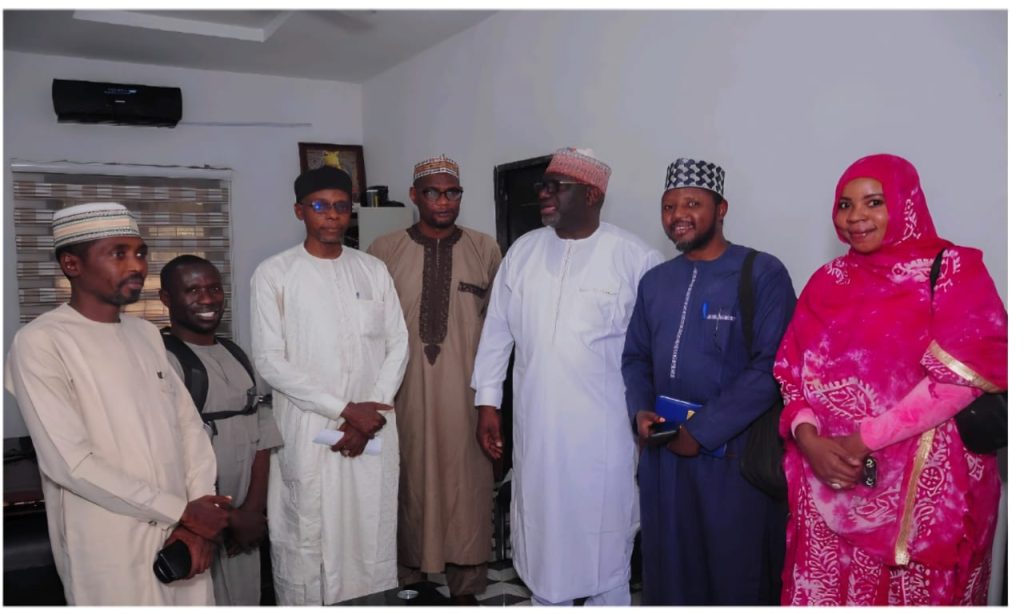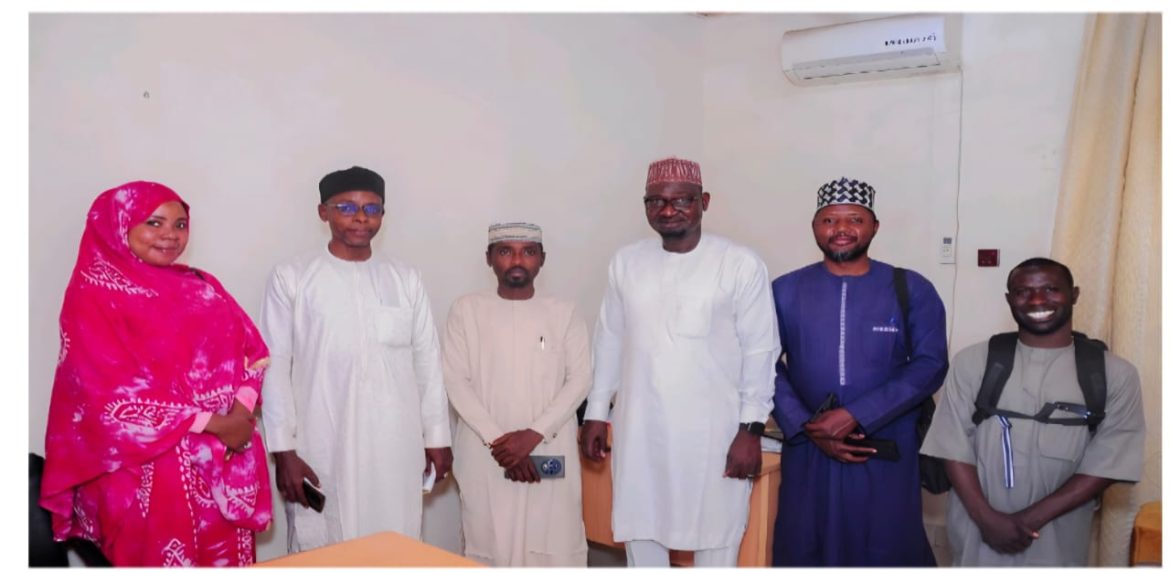By Muhammad Amaan
Human Resource for Health (HRH) has been described as a panacea for bridging the existing gaps experienced across all level of healthcare service delivery.
Africa Health Budget Network (AHBN) Advocacy and Accountability Specialist, Malam Aqibu Hamisu, who stated this, said the gaps are driven by many contributing factors such as retirement, death, delay in recruitment and ‘’greener posture’’ syndrome among others.
Against this backdrop, the strengthening Accountability for Women’s Health Project implemented by the AHBN, is supporting Kano State through evidence-based advocacy for improve health outcomes around Family Planning (FP) and Maternal, Newborn and Child Health (MNCH) to ensure accountability and utilization of the resources expended for healthcare service delivery down to the last mile.
Speaking at during a meeting witht he Coordinator Human Resource for Health, Malam Aminu Abdu, at the Kano State Ministry of Health, led by Malam Hamisu, Malam Salisu Yusuf of AMMKAS, gave a background of the Family Planning Project currently implemented by AHBN.
He narrated the outcomes of the previous engagement that prompted and necessitate a follow up on human resource for health- a critical complement of all other advocacy issues pursued.
The team led, Malam Aqibu Hamisu stated that the objectives of the visit were to assess the current status of human resource for health under state Ministry of Health and that of State Primary Healthcare Management Board. Thus, providing a genuine and accurate data for our advocacy engagement.
In his remarks, Malam Aminu expressed appreciation to the team for their unrelenting tracking efforts to ensure accountability and transparency are upheld.
While responding to the issue of human resource for health, the coordinator said, its true there is inadequate number of human resources for health across the state health facilities especially when compared with the Standard of the human resource requirement as recommended by World Health Organization (WHO) as for every 10,000 people, 45 frontline health workers (Doctors, Nurses and Mid-wives) are required.
“This implies that kano with a population of over 20million people, it requires at least 90 thousand frontline health workers.”
He also noted that according of Minimum Service Package Standard, a Standard Primary Healthcare Facility requires to operate for about 24/7 with staff capacity of not less than 24 across Community Health Officer, Nurses and Midwives, CHEW, JCHEW, Laboratory technicians, Pharmacist, Environmental Health Officers, Security etc.
“Therefore, the current staff strength in Primary Healthcare Facilities in kano is grossly inadequate even though state government is making effort in recruitment and training,” he said.
While making remarks on the HRH data, he informed the team that, the only available and verifiable HRH data was that of Primary Healthcare Facilities which can be obtained at the State Primary Healthcare Management Board but that of the State Ministry of Health cannot be ascertained now.
Mr Aminu added that since his assumption in office, efforts were put in place to develop data-base system that will audit, authenticate and validate the exact number of human resources for health with their disaggregation according to gender, cadre or discipline and place of work which will soon be done before the end of the year.
As coordinator human resource for health, he reactivated the Human Resource for Health Technical Working Group to facilitate data-driven approach to human resource for informed decision making and also planned to map out all temporary staff data which has not been reviewed since 2021.

In another development, the team also visited Drugs Management and Consumables Supply Agency and meet with the Director Drug Supply.
The visit was aimed to confirm whether the approved funds about 80millions was released for the procurement of family planning commodities and consumables or not and also to ascertain if any partner had donates FP commodities to the state.
In his remarks, Director Drugs Supply, Pharmacist Tukur Ibrahim provided details about drugs supplied to some health facilities as follows; “Hasiya Bayero were supplied with drugs worth of N30 million monthly, Marmara Hospital been supplied with drugs and other essentials worth N10 million monthly and Yada-kunya Hospital, about N1.5 million worth drugs are supplied to them monthly.”
He added that these funds were directly released into DMCSA account on quarterly basis by the state government.
While responding to questions about free MNCH services, the director commended the state government efforts of releasing the sum of 165million monthly to cater for free MNCH services across the state health facilities.
Health Reporters Newspaper reports that the two-advocacy visit provided insight for follow up and informed advocacy engagement, and highlighted other areas of advocacy as well as stakeholders to engaged.
The AHBN Team comprise of Aqibu Hamisu- Advocacy and Accountability Specialist, Salisu Yusuf- AMMKAS, Sulaiman Jalo- AMG Knowledge Management, Aftahana Dahiru Sarina- V-PESDI, Amina Marafa- Program officer- AHBN and Muhammad Salisu Abdullahi- Logistics




